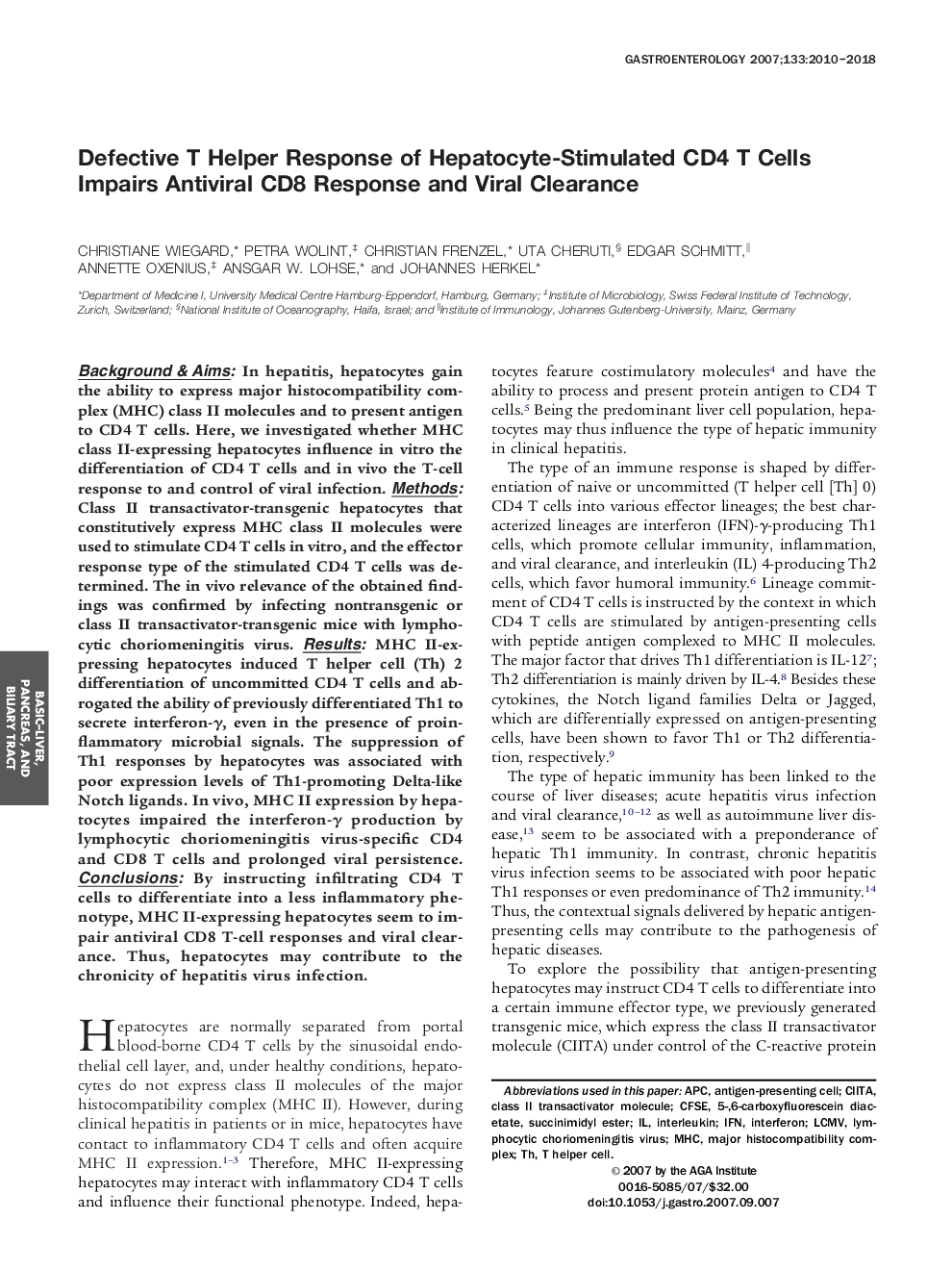| Article ID | Journal | Published Year | Pages | File Type |
|---|---|---|---|---|
| 3298960 | Gastroenterology | 2018 | 9 Pages |
Abstract
Background & Aims: In hepatitis, hepatocytes gain the ability to express major histocompatibility complex (MHC) class II molecules and to present antigen to CD4 T cells. Here, we investigated whether MHC class II-expressing hepatocytes influence in vitro the differentiation of CD4 T cells and in vivo the T-cell response to and control of viral infection. Methods: Class II transactivator-transgenic hepatocytes that constitutively express MHC class II molecules were used to stimulate CD4 T cells in vitro, and the effector response type of the stimulated CD4 T cells was determined. The in vivo relevance of the obtained findings was confirmed by infecting nontransgenic or class II transactivator-transgenic mice with lymphocytic choriomeningitis virus. Results: MHC II-expressing hepatocytes induced T helper cell (Th) 2 differentiation of uncommitted CD4 T cells and abrogated the ability of previously differentiated Th1 to secrete interferon-γ, even in the presence of proinflammatory microbial signals. The suppression of Th1 responses by hepatocytes was associated with poor expression levels of Th1-promoting Delta-like Notch ligands. In vivo, MHC II expression by hepatocytes impaired the interferon-γ production by lymphocytic choriomeningitis virus-specific CD4 and CD8 T cells and prolonged viral persistence. Conclusions: By instructing infiltrating CD4 T cells to differentiate into a less inflammatory phenotype, MHC II-expressing hepatocytes seem to impair antiviral CD8 T-cell responses and viral clearance. Thus, hepatocytes may contribute to the chronicity of hepatitis virus infection.
Keywords
Related Topics
Health Sciences
Medicine and Dentistry
Gastroenterology
Authors
Christiane Wiegard, Petra Wolint, Christian Frenzel, Uta Cheruti, Edgar Schmitt, Annette Oxenius, Ansgar W. Lohse, Johannes Herkel,
